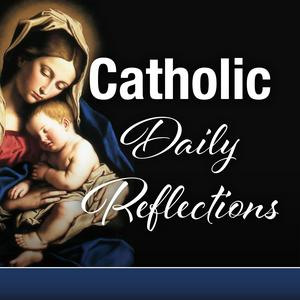Read Online
Jesus said to his disciples: “Be merciful, just as your Father is merciful.” Luke 6:36
What is mercy? How is the Father in Heaven merciful? Suppose someone lived a life contrary to God’s will. When that person dies and stands before the Judgment Seat of God, will God, in His mercy, say, “That’s okay, you can enter Heaven even though you do not deserve it”? Or in our lives, if someone is living an openly sinful lifestyle that is objectively contrary to God’s moral law, should we say, “If living that way makes you happy, then I’m happy for you”? Neither of these depicts authentic mercy.
After telling us, “Be merciful, just as your Father is merciful,” Jesus defines what He means. First, He tells us what not to do: “Stop judging…Stop condemning.” God, and God alone, has the authority to judge and condemn. We do not. Therefore, when we judge and condemn another, we usurp God’s authority. Only God sees the heart; therefore, only God can judge a person.
However, the command to “Stop judging” and “Stop condemning” must be exercised from two perspectives. On the one hand, we ought not to judge a person as a sinner deserving condemnation. On the other hand, we ought not to declare a person morally righteous, especially when someone’s actions contradict God’s revealed law. So what are we to do? We limit our judgment to the objective moral actions that God has revealed, leaving it to God to condemn or exonerate the heart. This will free us from anger and enable us to express authentic love.
For example, if two people live as husband and wife even though they are not married, we should look for an opportunity to express our hope that they enter into marriage rather than continue living together while unmarried. This is not a condemnation of their souls but a proclamation of God’s objective moral law. It’s the Gospel, and we must speak it with kindness, patience, and clarity. Furthermore, if we express to these same individuals that we are somehow happy for them and support their living arrangement, we are also wrongly judging them to be in God’s good graces, which is just as sinful on our part. Hence, not judging and not condemning means we focus on the objective action, not the heart. This can be difficult, especially with those closest to us, but it is essential in practicing true mercy.
What Jesus says next is even more challenging: “Forgive” and “give.” As an added motivation, Jesus explains that we will only be forgiven when we forgive others, and good gifts will be given to us only when we give. Forgiveness and generosity are acts of great mercy. To forgive is to offer pardon to one who has committed some sin against us. Though we never know a person's heart and, therefore, their culpability for an action, there are plenty of times when an offense is committed against us. In this case, there is only one appropriate response: forgive and give kindness, compassion, and mercy. We must never hold a grudge, remain angry, sulk over an injury, or hold a sin against another. Never.
The challenge is that human reason alone cannot fully comprehend this. We need divine revelation and God's grace to inform our minds and hearts that this is the right thing to do. By drawing closer to Christ in prayer and the sacraments, we can grow in this supernatural mercy, allowing His grace to transform our hearts.
Reflect today on this true meaning of mercy. Beg for God’s mercy in your life in superabundance. As you do, choose to offer mercy to others to the same extent that you ask for God’s mercy. Give generously, exceeding what your human reason alone comprehends, and God will pour His mercy upon you in the same incomprehensible way.
My merciful Lord, there are many times when I judge another, hold a grudge, and am stingy with mercy. Please give me Your Heart so that I can overcome my failures and give of myself with supernatural virtue. I want to be like You, my God. Help me show mercy in superabundance. Jesus, I trust in You.
Image via Adobe Stock
Source: Free RSS feed from catholic-daily-reflections.com — Copyright © 2026 My Catholic Life! Inc. All rights reserved. This content is provided solely for personal, non-commercial use. Redistribution, republication, or commercial use — including use within apps with advertising — is strictly prohibited without written permission.


